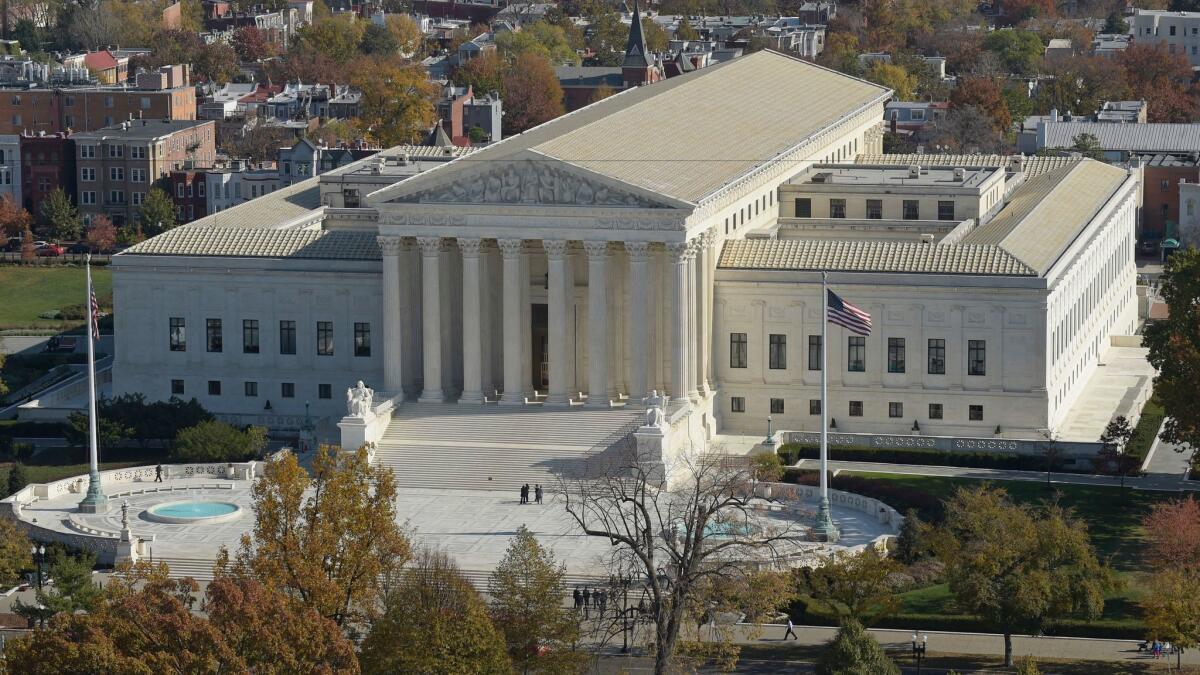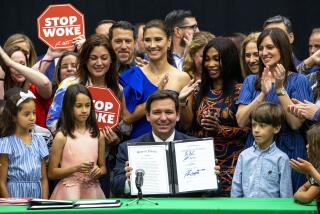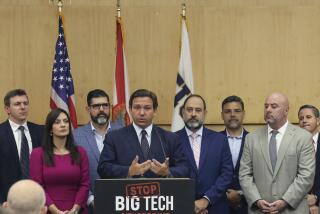Editorial: The power to grant trademarks isn’t a license to censor

Today the Supreme Court will hear arguments about whether the federal government can refuse to register a trademark because it contains an ethnic slur. If the court remains true to the 1st Amendment and its own precedents, it will answer no.
The case involves not the Washington Redskins — although the team has been involved in similar litigation in a lower court — but an Asian American rock band from Portland called the Slants. The U.S. Patent and Trademark Office denied it trademark protection, citing a law that prohibits registration for names that “may disparage ... persons, living or dead, institutions, beliefs, or national symbols, or bring them into contempt or disrepute.”
The government insists that the law’s so-called disparagement clause isn’t a violation of the 1st Amendment because the band is free to use the name — it just won’t have the exclusive right to profit off its celebrity through the sale of Slants-emblazoned T-shirts, guitar picks and other trademarked merchandise. That’s not the point. Denying the Slants trademark registration withholds a generally available benefit (protection against infringement) based on the content of their speech. That punishes speech.
The government is also citing a 2015 Supreme Court decision that upheld Texas’ refusal to issue specialty license plates for a group that incorporated the Confederate battle flag in its logo. The court unconvincingly held that such plates, which were issued for a fee to an array of groups that customized them with their own messages, constituted “government speech.”
“Just as a state is not required to place racist, misogynistic, or bigoted terms on license plates issued by the state,” the government says in one of its briefs, “the PTO is not required to use its resources to issue certificates of registration for marks containing disparaging terms, publish them in the PTO’s Official Gazette and record them on the Principal Register.”
The court should reject any suggestion that the patent office is engaging in “government speech” simply by publishing the names of registered trademarks in a directory.
The federal appeals court that ruled for the Slants offered a much better description of the situation than the one offered by the patent office. “The government regulation at issue amounts to viewpoint discrimination,” and thus was unconstitutional, the U.S. Court of Appeals for the Federal Circuit said.
We find the name “Redskins” objectionable and wish the team would change it. We’re less offended by “the Slants,” but recognize that some might object to the name despite the fact that its Asian American members see it as “reappropriating” a racial slur.
Private individuals, and newspaper editorial boards, are free to express such opinions. But under the 1st Amendment, the government can’t pick and choose which speech will be protected and which will be penalized. A trademark amounts to no more of a government endorsement of a point of view than a patent for an invention, a copyright for a book or a permit to hold a rally. The court should remind the patent office that its proper role is to protect intellectual property rights; it’s not a censor.
Follow the Opinion section on Twitter @latimesopinion and Facebook
More to Read
A cure for the common opinion
Get thought-provoking perspectives with our weekly newsletter.
You may occasionally receive promotional content from the Los Angeles Times.






